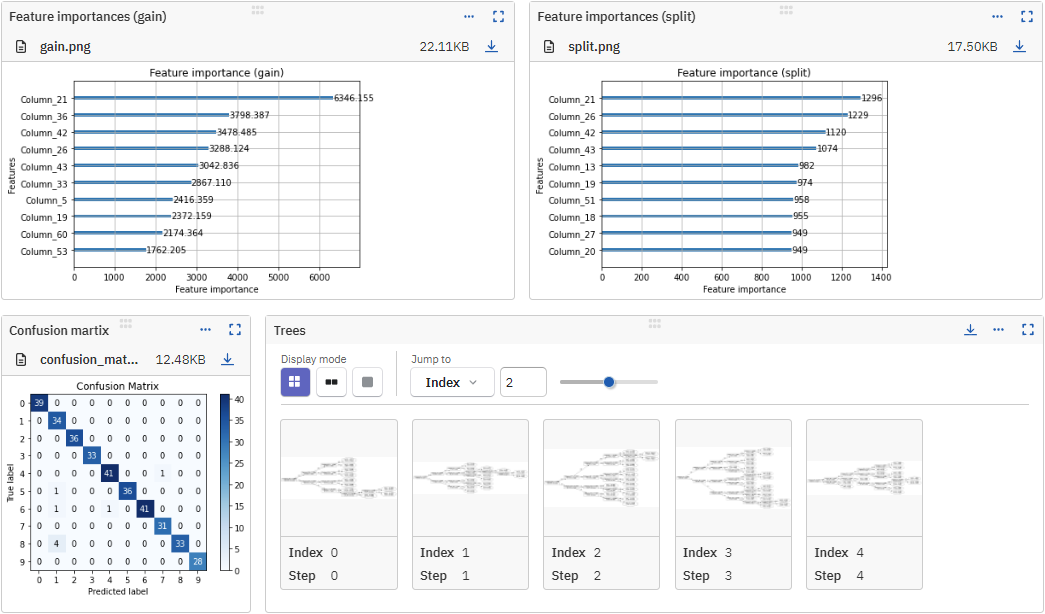Experiment tracking for LightGBM-trained models.
- Log, organize, visualize, and compare ML experiments in a single place
- Monitor model training live
- Version and query production-ready models and associated metadata (e.g., datasets)
- Collaborate with the team and across the organization
- training and validation metrics,
- parameters,
- feature names, num_features, and num_rows for the train set,
- hardware consumption (CPU, GPU, memory),
- stdout and stderr logs,
- training code and Git commit information,
- other metadata
- Documentation
- Code example on GitHub
- Example of a run logged in the Neptune app
- Run example in Google Colab
# On the command line:
pip install neptune-lightgbm
# In Python:
import lightgbm as lgb
import neptune
from neptune.integrations.lightgbm import NeptuneCallback
# Start a run
run = neptune.init_run(
project="common/lightgbm-integration",
api_token=neptune.ANONYMOUS_API_TOKEN,
)
# Create a NeptuneCallback instance
neptune_callback = NeptuneCallback(run=run)
# Prepare datasets
...
lgb_train = lgb.Dataset(X_train, y_train)
# Define model parameters
params = {
"boosting_type": "gbdt",
"objective": "multiclass",
"num_class": 10,
...
}
# Train the model
gbm = lgb.train(
params,
lgb_train,
callbacks=[neptune_callback],
)If you got stuck or simply want to talk to us, here are your options:
- Check our FAQ page
- You can submit bug reports, feature requests, or contributions directly to the repository.
- Chat! When in the Neptune application click on the blue message icon in the bottom-right corner and send a message. A real person will talk to you ASAP (typically very ASAP),
- You can just shoot us an email at support@neptune.ai
